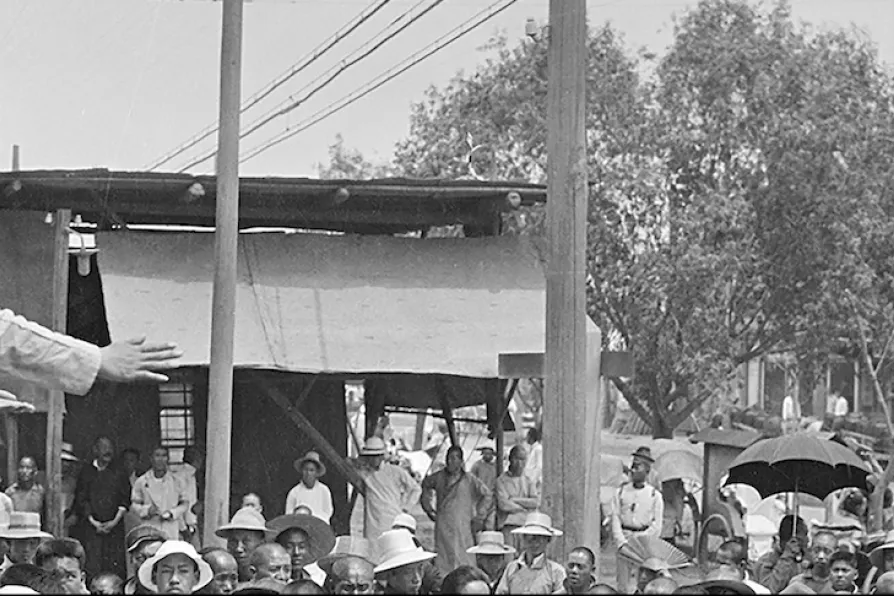As the RMT Health and Safety Conference takes place, the union is calling for urgent action on crisis of work-related stress, understaffing and the growing threat of workplace assaults. RMT leader EDDIE DEMPSEY explains

 SEISMIC CHANGE: The May Fourth Movement radicalised China as the general urban population became involved in political demonstrations and many future Communist leaders were converted to Marxism.
[Sidney David Gamble / Public domain]
SEISMIC CHANGE: The May Fourth Movement radicalised China as the general urban population became involved in political demonstrations and many future Communist leaders were converted to Marxism.
[Sidney David Gamble / Public domain]
WIDTH of imagination is necessary to grasp the fullness of the dream of human rights. The idea emerges slowly, driven by the hunger of the vast majority of the world’s people.
Revolutions in the early years of the 20th century (Mexico, 1911; Persian empire, 1911; Ireland, 1916; tsarist empire, 1917) brought the old ideas of equality to life, making it perfectly possible that older social rigidities and economic destitution could be swept away. Crush the crowns underfoot, chanted the republicans, while others, the trade unions and the socialists, wanted to set aside the capitalists and establish an egalitarian social order.
It was generally understood — as far back as during the French Revolution (1789) and the Haitian Revolution (1804) — that the wretchedness of hierarchy must be overthrown. The problem before dreamers of various sorts was how to get rid of monarchs and factory-owners and yet build a world that was not going to slip back into chaos and poverty. That’s where Karl Marx came in.

BEN CHACKO welcomes a masterful analysis that puts class struggle back at the heart of our understanding of China’s revolution

In a speech to the 12th Xiangshan Forum in Beijing, SEVIM DAGDELEN warns of a growing historical revisionism to whitewash Germany and Japan’s role in WWII as part of a return to a cold war strategy from the West — but multipolarity will win out

VIJAY PRASHAD on why the US attack on Iran was illegal and why the attack could actually spur nuclear weapons proliferation











